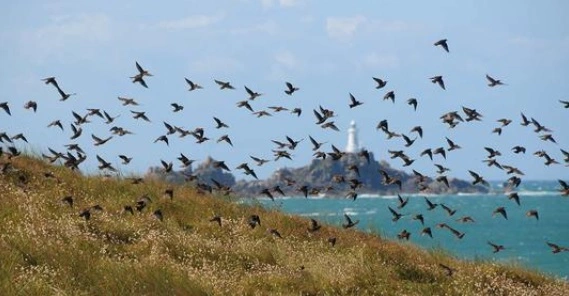- cross-posted to:
- [email protected]
- cross-posted to:
- [email protected]
Walking in England’s New Forest in 1892, butterfly collector S. G. Castle Russell encountered such numbers of the insects that they “were so thick that I could hardly see ahead”. On another occasion, he “captured a hundred purple hairstreaks” with two sweeps of his net.
Patrick Barkham, who recounts these riots of nature in his 2010 book on butterflies, laments never seeing such a sight. However, new research suggests Barkham is a rarity, because a lot of people are forgetting, or just don’t appreciate, how much wildlife there was.
To gauge this effect, Lizzie Jones at Royal Holloway, University of London, compared population records dating back to 1966 of 10 UK bird species against public perceptions of those birds. More than 900 people told her how abundant they thought the species – including declining ones such as house sparrows – were today and when they were aged 18.



I see this comment so much, but it was never true where I lived. In fact, I only ever experienced the insects covering my windshield thing for the first time less than a decade ago when driving through North Dakota, Montana… Big, open spaces, I guess. Where I grew up, there were trees and houses everywhere, no real open spaces. So maybe that made the difference.
I just drove through Montana again and had barely half a dozen insects on my windshield throughout the trip, so I do believe that’s a very obvious sign for people who live in that kind of area.
Anyway, what I miss is frogs. I used to see frogs and toads and even turtles all the time. Can hardly remember the last time I saw one.
deleted by creator